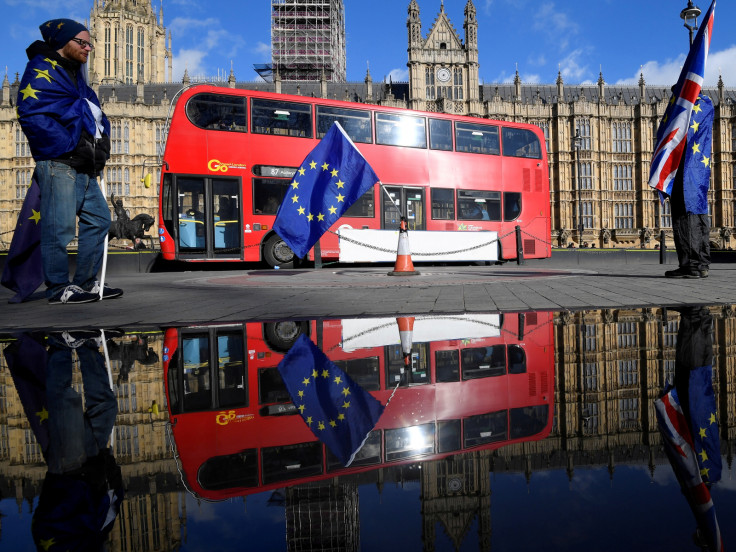Three ways to recruit the best talent in a post-Brexit world
With less professionals looking to the UK for career opportunities and as the labour market tightens, recruiters and businesses need to keep innovate.

There is no question that Brexit has had an impact on business confidence. With just under a year to go until we officially leave the EU, at LinkedIn we are frequently asked questions by businesses about the impact this will have on the availability of talent and what they can do to prepare.
These concerns reinforced by the findings from first of our new quarterly Recruitment Sentiment surveys, which gauge recruiters' confidence in their ability to fill roles and uncovers the trends they're seeing in the marketplace. It's no surprise that 96% of recruiters and HR managers surveyed said Brexit is having an impact on their hiring strategies.
Over two fifths (44%) said that the UK is now less attractive to EU 27 candidates, with London in particular losing its longstanding appeal - 39% have found international candidates reluctant to move to the capital.
But it isn't all doom and gloom. Whilst Brexit is a concern for recruiters – as it is for most businesses in the UK – we're seeing the industry remain resilient, with 71% 'very' or 'extremely' confident about their ability to recruit the right talent. And, 48% saw an increase in hiring over the first quarter of 2018.
It's positive to see overall confidence across the talent industry remain relatively high, but this shouldn't lead to complacency. With less professionals looking to the UK for career opportunities and as the UK labour market tightens, recruiters and businesses need to keep innovating to ensure they are winning in the war for talent.
There are ways that businesses can thrive in these uncertain times, here are my top tips:
1) Harnessing Artificial intelligence
AI is and will continue to be incorporated into the hiring process over the next year and beyond. Our Global Recruiting Trends report showed that more than a quarter (28 percent) of UK hiring managers think AI is the most important trend for 2018 - helping them source, screen and nurture candidates - saving time and helping removing any human bias.
A recruiter's natural instinct for relationship building, testing skills and judgement will always be essential to the industry, but what will make them even more powerful is when they are combined with analytical tools and data-driven insights.
At LinkedIn, we've tried to make integrating AI into the hiring process simple for recruiters and businesses through our Spotlight feature – which helps to double candidate response rates. By leveraging artificial intelligence, Spotlight enables recruiters to prioritise candidates based on insights like the type of role they are looking for, the industries they are interested in and whether they are open to new opportunities.
2) Upskilling: building from the inside
LinkedIn's April UK Workforce Report found that there was a 26% decrease in professional migration into the UK over the last year - so with fewer professionals coming into the country, now is the time for business leaders to not only consider new talent but focus on upskilling and retaining their existing workforce. Talented professionals will be more likely to consider other opportunities if they don't see enough career progression, so arm your employees with new skills and knowledge regularly.
Investing in learning and development will also make your workforce more productive, but also more loyal to the company – making it easier to navigate future skills gaps and the competitive hiring landscape
3) Branding: be heard, be known
Brexit offers an opportunity for leaders to assess their employer brand - making it appealing to the talent you need now, and in the future, to ensure access to the talent pool you need - from the UK and abroad - is maintained. The benefits of building a strong employer brand extend far beyond your bottom line and no matter the size of your team or budget it will make it easier to recruit the right talent.
Firstly, don't forget to make sure there's consistent communication between marketing and recruitment teams, this will help you have the best chance of making sure your talent brand is resonating with the individuals you need to reach.
Secondly, make your brand known by championing your employees as brand ambassadors. Encourage them to post about your company's values and achievements on their social media channels - the louder everyone shouts, the more your collective voice will be heard.
Don't forget that one of first things candidates want to know before applying for a job is the company's culture and values, and job descriptions are a perfect place to demonstrate them. Go beyond the skills and describe what it's actually like to work for you company and let its personality shine through.
Jon Addison is Head of Talent Solutions at LinkedIn UK
© Copyright IBTimes 2025. All rights reserved.






















